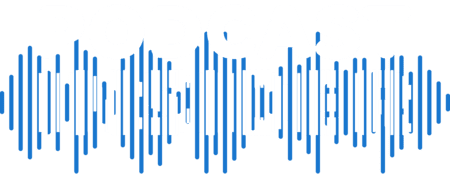Podcast: Play in new window | Download (Duration: 19:03 — 26.2MB) | Embed
Expand your podcast audience to the written medium.
 Creating a book based on the content of your podcast can be a fantastic way to extend your reach and provide your audience with a tangible resource. In our latest episode, we explore the dynamic process of transforming your podcast content into a book.
Creating a book based on the content of your podcast can be a fantastic way to extend your reach and provide your audience with a tangible resource. In our latest episode, we explore the dynamic process of transforming your podcast content into a book.
Today’s Hosts: Todd Cochrane and Mike Dell
Writing a book is hard work! BUT, as a content creator, you may have an upper hand in the subject of your book because you do a podcast about it.
First lets talk about WHY you would want to write a book for your podcast.
- Establish yourself as an expert – Writing a book demonstrates your depth of knowledge on the subject, giving you more credibility.
- Reach a wider audience – Books allow you to connect with people who may not listen to podcasts regularly.
- Provide more detailed information – You can explore topics more comprehensively in a book than a podcast.
- Generate passive income – Books offer ongoing earning potential through sales over time.
- Reinforce your branding – A book helps cement your podcast’s branding and messaging.
- Attract sponsors and partners – A published book makes you more attractive to potential sponsors.
- Build your legacy – Books are tangible products that last, extending your ideas and influence.
- Leverage existing content – Adapt your best podcast episodes into book chapters more efficiently.
- Promote your podcast – You can cross-promote your podcast in the book to attract new listeners.
- Take your work to the next level – Writing a book requires distilling your ideas at a higher level.
- Reach people who prefer reading – Some prefer learning through books than audio.
Now that you know why, how about HOW to go about writing the book.
- Expand on your best content. Look through your podcast episodes and identify your most popular topics and discussions. These are great candidates to explore in more depth for a book.
- Conduct additional research. Books require diving deeper than a podcast episode. Do additional research through interviews, surveys, studies, etc. to expand the book content.
- Follow a structure. Outline the book structure ahead of time – introduction, chapters, conclusion. Plan how you will expand on key topics.
- Maintain your voice. Your listeners engage with your podcast because of your unique voice and perspective. Maintain that tone and style in the book.
- Include actionable advice. Readers will expect detailed, practical advice from a book, more so than a podcast. Offer step-by-step guidance.
- Share stories and examples. Anecdotes and real-world examples help readers connect with the content and see concepts applied.
- Address critiques. Deal with pushback or criticisms raised about your podcast material and present counterarguments.
- Complement, don’t duplicate. Avoid rehashing podcast episodes. Offer new analysis and insights.
- HIRE AN EDITOR! A fresh set of eyes on a project like this will help you avoid grammar, spelling and punctuation errors. Along with helping you keep the correct tone of the book and to keep it flowing.
- Ways to Publish the Book
- Work with a publisher/editor. Consider working with a publishing house
- Self-publish on something like Amazon
- Self-publish an ebook
- Sell it yourself
Not all podcasts lend themselves to books. A news type podcast might not directly be able ot be made into a book, but you could still do a book in your general subject area.
The goal is to effectively adapt your podcast material into a book format while adding significant value for readers. Leverage your podcast content without just repackaging it.
The best place for support with any Blubrry product or service is our ticket system. Tickets give the whole team access vs. direct emails or calls.
Fill out our listener survey at surveys.blubrry.com/podcastinsider.
- Hosting customers can schedule a one-on-one call with Todd or a tech checkup with Mike.
- todd@blubrry.com and mike@blubrry.com





